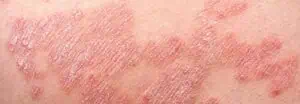WHAT IS THE DIFFERENCE BETWEEN IPL AND LASER HAIR REMOVAL?
Laser hair removal treatment is an extremely popular cosmetic procedure for both men and women alike. Most areas on the body and face can be treated with lasers for permanent hair reduction with the most popular treatment areas being the chin, upper lip, cheeks, legs, arms, underarms and, chest, bikini line and back.
You may have heard of both IPL (intense pulsed light) treatment and laser hair removal as treatment options for hair removal, however there are often questions about what these two treatments do and how they are different to each other.
How do IPL and lasers work to remove hair?
Let’s start with how they both work. This is where the two treatments are most similar. Both IPL and lasers work to remove hair by using a light source to destroy the hair. Light is directed on to the skin which is then absorbed by the melanin pigments in the hair.The absorption of the light causes the hair follicle to heat up. By using the correct amount of light energy heating the follicle to the correct temperature, the heat is able to interrupt the hair growth cycle causing the hair to stop growing.
For both IPL and lasers, a course of treatment is required to see the desired results. As hair grows in cycles, not all the hair will be targeted during one single treatment session. For IPL, it is often recommended to have at least 10 treatments, often one month apart. Lasers often require slightly less treatments, with results often seen between four to six sessions. With both treatments, this is dependent on the thickness of the hair being removed, as well as the skin type and hair colour.
What is the difference between IPL and lasers for hair removal?
The key difference with these two treatments is the type of light that is used. IPL uses a less specific light source compared to a laser, using a broad spectrum of light with multiple wavelengths. Due to the light source being less specific and less targeted, IPL can target not only the melanin in the hair follicle, but also the melanin in the surrounding skin. Due to this, the energy output when using IPL needs to be limited to ensure safety. Lasers on the other hand use a monochromatic coherent light source, which means one wavelength or colour of light going in one direction. This makes laser light more concentrated and more targeted to the hair which needs removing.
A good way to imagine this difference is that IPL, which has multiple wavelengths, is like a flashlight. When using a flashlight, you can point the light at a particular object but you can also see the surrounding area. Laser light, which only uses a single wavelength, is much more specific and is like a laser beam pointing directly at the object you are targeting.
Can IPL and lasers be used to treat the same thing?
Both IPL and lasers are effective in hair removal. IPL often requires more treatments and may not achieve the same final hair reduction as a laser can. Due to this, hair removal using a laser usually produces faster results.
IPL is effective in not only hair removal, but also treating rosacea and facial flushing. Likewise, lasers too can be used for more than hair removal. They are effective in treating pigmented lesions, acne scars, tattoo removal and thread veins to name a few. This versatility of both treatment types makes them popular with dermatologists for not only cosmetic purposes but also for treating a variety of skin conditions.
How do I know if I should have IPL or laser for my hair removal treatment?
Due to the fact that IPL is less targeted, the treatment works best on those with lighter skin types as some areas around the hair will also be exposed to the light. The darker the skin tone, the more melanin pigments, and as permanent hair removal works by light being absorbed by melanin pigments, the results will be less effective on those with more melanin pigments in the skin. Lasers are able to be used on darker skin types as the light is more targeted to the hair rather than the surrounding skin. Both IPL and lasers work best on darker hair in comparison to lighter hair.
IPL is typically cheaper per session in comparison to laser, however more treatment sessions are often required to deliver the desired results, meaning laser hair removal can be more cost effective in the long run.
IPL and laser treatments are both suitable for men and women over the age of 18 and can be used to permanently reduce hair on both the body and the face.
Prior to your treatment you will be required to attend a consultation where your medical history will be discussed and a patch test conducted to ensure you don’t react negatively to the treatment. Most high quality dermatologists will have access to both IPL and lasers and during your consultation they will be able to advise you on what would best suit your needs. Here at Stratum we use a range of state of the art lasers including the Alexandrite, Revlite, Elite and NdYAG.
Find out more about Laser Hair Removal
When having laser hair removal, it is vital that the person conducting the treatment is both qualified and experienced, as well as the facilities you are having the treatment in are clean and safe.

Find out more about Laser Hair Removal
When having laser hair removal, it is vital that the person conducting the treatment is both qualified and experienced, as well as the facilities you are having the treatment in are clean and safe.

Are there different side effects of IPL and laser?
If your laser hair removal treatment is conducted by a professional with the relevant qualifications then there are minimal side effects to both IPL and lasers. Most treatments will also involve a cooler unit which cools the skin as it is being treated to reduce any side effects. Following the treatment your skin may feel sensitive or appear red but this will fade within a few hours. Following both IPL and laser treatment, the treated skin is more sensitive to the sun so it is recommended to protect the skin with an SPF of 50. It is recommended not to have a hot bath or shower following treatment and to avoid wearing makeup straight after treatment.
Do your research before deciding to have laser hair removal treatment and ensure that the therapist carrying out your treatment is fully qualified as if not used correctly, this treatment can lead to burns and scarring. You will be required to attend a consultation before treatment begins, where you can ask any questions you have, discuss the areas of hair you would like to be reduced and have a patch test to ensure you won’t react to the treatment.
AUTHOR

DR ALICE HUDSON-PEACOCK
SPECIALITY DOCTOR IN DERMATOLOGY & LASER THERAPY
GMC: 3252714
Qualifications: MBBCh DRCOG MRCGP
Dr Hudson-Peacock has been providing laser treatments for skin conditions since 1997. She was the winner of the Silver Award for Aesthetic Practitioner of the Year at The Kent Health and Beauty Awards 2016.
Dr Hudson-Peacock is the managing director of the Canterbury Skin and Laser Clinic which is part of the Stratum Dermatology Clinics.




